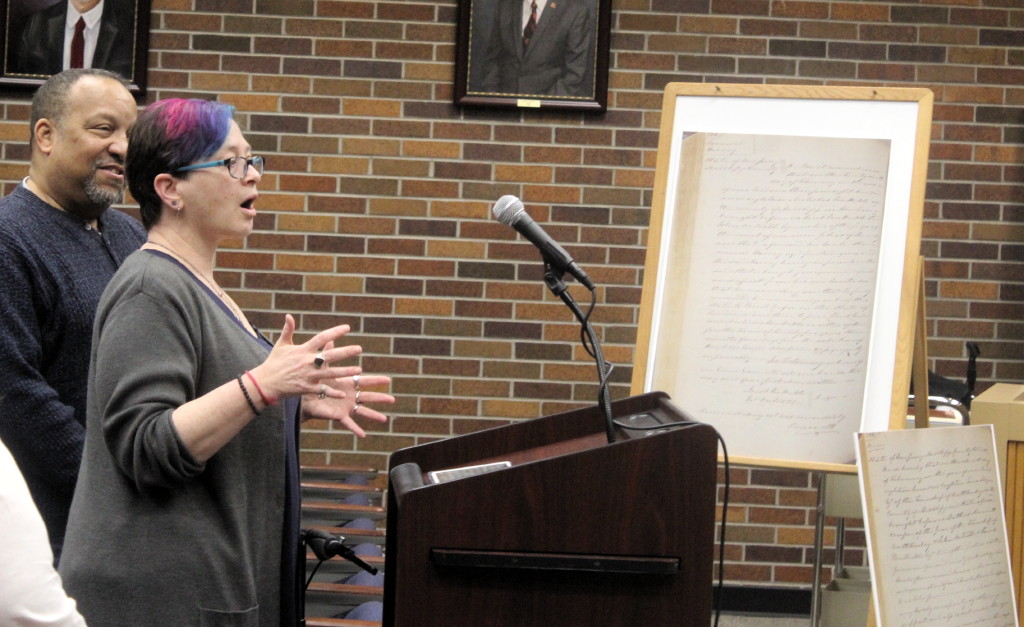EAST BRUNSWICK – To commemorate the final week of Black History Month, Lost Souls Public Memorial Project members delivered updates about the status of their ongoing initiative.
Founded in 2017, the Lost Souls Public Memorial Project is a grassroots, community-based effort to remember 177-plus African Americans whose freedom was stolen by a corrupt Middlesex County judge, Jacob Van Wickle, in 1818. The project would build a memorial at the East Brunswick Community Arts Center, according to the Rev. Karen Johnston of the Unitarian Society of East Brunswick.
On Feb. 24, East Brunswick Councilman Kevin McEvoy read a proclamation on behalf of Mayor Brad Cohen declaring February Black History Month.
“I am so happy [about] this proclamation that came through tonight. It takes a lot of courage for a community to recognize the differences that make up the community. Particularly, with the Lost Souls [Public Memorial Project] because that is actually a scar in our community, but you have to take the scars and let them heal and recognizing it is just the first way you have to do it. I am very proud of what East Brunswick has done,” said Bruce Morgan, president of the New Brunswick Area Branch of National Association for the Advancement of Colored People (NAACP).
The project is sponsored by the Unitarian Society, the New Brunswick NAACP, the Rutgers University NAACP, the New Jersey Chapter of the Afro-American Historical and Genealogical Society, and the New Jersey Council for the Humanities.
Johnston said the Lost Souls Public Memorial Project was featured in The New York Times Magazine’s Feb. 16 issue as part of its ongoing 1619 Project.
“It is not every community that is courageous enough to look back at a scar and to do so willingly and to do so with justice and healing on its mind,” Johnston said. “East Brunswick is willing to be one of those courageous communities and we are so thankful to be in partnership with [the township].”
Since The New York Times Magazine article was published, Johnston said she has been receiving local and national inquiries about the project.
“I am proud to be able to share when I’m asked, ‘Are you being supported by your municipality?’ I get to say ‘yes,’” Johnston said.
Johnston said the project has launched a new website, which was made possible through grant funding from the New Jersey Council for the Humanities.
“We look forward to a time soon when there will be formal documentation of the township’s support for us siting the monument at the Community Arts Center so we can make good on our next step, which is putting out a request for proposals for the design of this future monument,” Johnston said.
With help from its primary historian, Johnston said three more victims’ names have been discovered.
Displaying two enlarged certificates of removal dated February 1888 for the Township Council, Johnston said these documents show how Van Wickle used his power to wrongfully enslave an African American teenager believed to have been named Henry or Harvey.
“I share this with a heavy heart because it is grim. It is a grim bureaucratic record of selling a human being into permanent slavery,” Johnston said. “It is heavy history that we have the opportunity to be the stewards [so] there might be justice and healing.”
For more information about the initiative, visit www.lostsoulsmemorialnj.org/about/.
Contact Vashti Harris at [email protected].

